Clytemnestra, Queen of Mycenae Welcome back Myrmidons to Greek Mythology Retold and the Homeric Chronicles. The first 3 episodes were dedicated to establishing the narrative timeline and the next several episodes are grouped together as the: Wonder Women of Greek Mythology. Let’s begin with Clytemnestra. She’s one of the strongest mortal females in the Trojan War narrative. Although she’s a classic tragic heroine, her fatal flaw is one any mother—I’ll bet any father as well—can personally relate to. Her mythological story arc is a long and painful one, punctuated by brief moments of joy she finds in renewed love and the birth of her last child. Also, her inability to grasp how her focus on avenging her daughter’s death stole the joy of the life in front of her is also a uniquely human and relatable experience. Who hasn’t struggled with balancing the past, present and future? As a woman writer of Greek mythology, I find her one of the most intriguing characters to research and write. She’s probably one of my favorites, if not THE favorite. In my episodes 1 and 2, I debunked the 4 egg, simultaneous “hatchings” of Clytemnestra, Helen, Caster and Pollux for a variety of reasons…mostly narrative structures that make sense for humans, and how these characters in particular relate to other, stronger story lines of other major characters. It’s a lot to balance, for sure, but not impossible. In the Homeric Chronicles, Clytemnestra is the elder sister of Helen by a generation. She’s an established widow and a twice married woman by the time Helen is born. I’ll cover all the details of Helen’s conception and birth in a later episode of this Wonder Women of Greek Myth section called: Two Wronged Queens. After Clytemnestra is born, she’s the first princess of Sparta. No doubt Queen Leda had affection for her daughter, but she was already emotionally scarred by Zeus so it makes sense Leda would be one of two ways with Clytemnestra: distant and self-protective or suffocating and over-protective. Both natural reactions to her trauma of being raped by Zeus. What I had to do in the Homeric Chronicles was make a choice for the narrative and HOW that would then shape Clytemnestra’s relationship with her and Clytemnestra’s development as a woman. Knowing what trials Clytemnestra endures, I chose the colder, distant Leda who would then foreshadow what her eldest daughter would become. Unfortunately for Clytemnestra, she (and Helen) is doubly cursed. The first curse comes from within Clytemnestra’s own family. Hesiod informs us in Fragment 67 of the Catalogue of Women that Tyndareus, Clytemnestra and Helen’s father, offended Aphrodite because “while sacrificing to the gods Tyndareus forgot Aphrodite” making the goddess “angry and [so] made his daughters twice and thrice wed and deserters of their husbands.” And Hesiod also says: (ll. 1-7) "And laughter-loving Aphrodite felt jealous when she looked on them and cast them into evil report…and even so Clytemnestra deserted god-like Agamemnon and lay with Aegisthus and chose a worse mate; and even so Helen dishonored the couch of golden-haired Menelaus." What are the implications of Aphrodite’s curse for Clytemnestra and Helen? Basically, they’re doomed to be unvirtuous women, it’s the ancient world’s version of “slut-shaming” the sister’s for something THEIR father did wrong. Maybe it’s because of the first curse that they were destined to be married into the bad luck club of House Atreus, adding the second layer of misfortune. A string of heinous actions, including patricide, infanticide, cannibalism, incest, and adultery can be traced back to Agamemnon’s and Menelaus’ grandfather, Tantalus #1. Tantalus #1 was a crazy sociopath who boiled up his son for dinner and served him to the gods. This was an unforgivable act resulting in him being sent to Tartarus—the dark hole of never-never land-- forever. And the bad luck trickled down through the bloodline of House Atreus to Agamemnon and Menelaus. So, what happened to Clytemnestra happens because of the sins of the men who had societal control of her life. Not unusual in a patriarchal society. Clytemnestra isn’t immune from the curse plaguing House Atreus for several generations. House Atreus is teeming with its share of heinousness, including patricide, infanticide, cannibalism, incest, and adultery traceable all the way back to her great-grandfather Tantalus #1, father to both Thyestes and Atreus. (To avoid confusion at this point, there are 2 or possibly 3 related characters named Tantalus in this story line). Tantalus #1 was a socio-path or just plain crazy because he served his son, Pelops, to the gods for dinner, a particularly unforgivable crime for which he was eternally damned. This is what started the cloud of doom trailing his descendants, including Clytemnestra once she marries Agamemnon. It doesn’t seem that Clytemnestra received any more privileges as a princess than we’d expect women to have in the ancient world. She’s given to her first husband, Tantalus #2, when she was a virgin, so it’s likely she was a bride at 16 or 17. She became a Princess of Mycenae by marriage to Tantalus #2, because his father, Thyestes was King of Mycenae. (OKAY, NOW I have to diverge a bit about all the Tantalus-es because the mythology on Tantalus #2 and #3 is kind of murky. According to Apollodorus and Pausanias, Tantalus #2 was a Prince of Pisa OR the son of Thyestes, and Tantalus #3 is the son of Thyestes. I made a decision in the Homeric Chronicles to merge Tantalus #2 and #3 in to a single character, and I’m going with that the whole way through. What makes for good page turning is that we keep the cannibalism in there. Back on track now… So, after she’s married to Tantalus, they have a child. Not long after that, Agamemnon in cahoots with Tyndareus, Clytemnestra’s father, attacks Mycenae brutally killing Clytemnestra’s first husband and child. This level a trauma scars Clytemnestra’s psyche, planting the seeds of future blood and vengeance. But, when her father forces her to marry Agamemnon those seeds get pushed deeper into fertile soil. In the Homeric Chronicles you’ll watch as she develops a strong core of hate born of grief. She becomes the cold and distant mother Leda was, much for the same reason: being traumatized by the men in their lives. When you experience that kind of pain, it’s natural to distance yourself as a protection against more hurt—even if that means pushing away emotions and people you love, because, well, if something should happen to them, you’d experience more pain. It’s a vicious cycle. Clytemnestra’s marriage to Agamemnon cements the Queen of Mycenae’s complicated foundation. In the Homeric Chronicles chapter 21, there’s a pivotal scene between Leda and her daughter on how to have a measure of power: ________________ “You would have me continue as if he’s done nothing? Even Thyestes received greater mercy than I am expected to endure. Agamemnon killed my husband. My son. Your grandson. Does this mean nothing to you?” Leda took her daughter roughly by the shoulders, shaking her words into the young woman between clenched teeth. “You stupid girl! Have you not learned already? Do you think men the only creatures who go to war? The only ones who gird themselves in armor? You think there’s more bravery in hacking a man in two than the plight of women, who pass by the horror, slipping on the blood and shit of strangers to find their men? Bring them home. Stitch their gaping holes, praying to the gods for their healing all the while knowing death drags them to the Underworld? Every step you take, every word you utter is a strategy in a war for control of your world. Agamemnon has won the first battle.” Tears slid down her daughter’s cheek, and Leda gentled her tone. “Gird yourself, my darling, with your words, your plans. Don’t let him win the war.” The princess wiped the tears from her eyes and stiffened her jaw. “I will rule my world.” “Now, you sound the true Spartan princess.” ______________ Women didn’t have the freedom to choose their own path; who they were-- was defined for them by the men in their lives, first their father and then their husband. Clytemnestra has no choice but to marry the man her father tells her she must, even if he’s the murderer of her first husband. Her life had value only because it legitimized Agamemnon’s claim to the Mycenaean throne. After the marriage, years of calm followed. As did two more children, Orestes and Elektra. Peace held in Mycenae until the day, a Trojan prince absconded with her younger sister, Helen of Sparta—her sister and her husband’s brother’s wife. It’s an affront the “boys of House Atreus” can’t let go. They organize an expedition against Troy. Up to the call to the Second Trojan War, life was fairly calm for Clytemnestra as she worked within her position as Queen of Mycenae and mother of three royal heirs to gain control of her world. She balances her buried grief for the deaths of Tanatlus#2 and her child with the life imposed on her by her father. She uses her feminine wiles to keep Agamemnon and the household loyal to her. But, as Sigmund Freud said: “Unexpressed emotions will never die. They’re buried alive and will come forth in uglier ways.” This couldn’t be more true for Clytemnestra…it wasn’t just because of Iphigenia that she wanted to kill that Agamemnon—it was really for ALL of it—for her late husband, for her child, for Iphigenia, and for being forced to marry him in the first place. She probably thought about putting a knife to her father’s throat more than once. Her desire for vengeance, and perhaps righteously so, is practically a lifelong development. Agamemnon murders their daughter, Iphigenia, at Aulis to get the winds to blow the fleet across the Aegean. This is the second child murdered by the same man, and you can’t help but wonder how that raked up Clytemnestra’s past grief. She mourns Iphigenia alone back in Mycenae, where the coldness of her personality grows colder. This is her fatal flaw as a tragic heroine. She has two children, Elektra and Orestes, both by Agamemnon, who she pushes away because her need for revenge called louder than her heart’s need for love. Perhaps, she feels that she doesn’t deserve love in any form. Another very human aspect of her story line. Who hasn’t struggled with their sense of self-worthiness in the realm of love. In the Homeric Chronicles I write about her complex relationship with Aegisthus passionate and cold in keeping with her character. He says to her, "You're heart is iron." To which she replies, "My heart is ash." In the end she gets the satisfaction of revenge realizing too late the cost of that desire. The loss of her children’s love. Clytemnestra is all at once a tragic figure of a mother’s love gone wrong, a wife’s loyalty broken, and a lover’s inability to truly commit. The curse of House Atreus consumed Clytemnestra along with the rest of Tantalus’ bloodline.
Get started on the journey with 1 click.
|
While writing the Homeric Chronicles, I reference amphorae quite a bit because these vessels were commonly used to store wine, oil, and water much the way we use Tupperware. So, one vessel that intrigues me is the two handled amphora depicting Achilles and Ajax playing dice while trying to relax during the Trojan War. The vessel is from the Archaic Period (525-520 BCE).
I love this scene and decided to reference it in Rise of Princes, book two of the Homeric Chronicles. Playing dice humanizes the Greek heroes, making them reachable characters because they too needed reprieve from stress and bad days, as well as the grinding hardships of war. Enjoy the video :)

meet the royal families of Troy, Ithaka, Sparta, and Mycenae.

Achilles and Hektor rise to fame and glory.
© Janell Rhiannon2016
Any information from this blog must be properly cited :)
Nicole has helped me organize my random and wild thoughts. I start down some marketing hole and look back only to find, I've not written anything for a week and it's already the next week. She helps me keep it together. Giselle organizes the touring of book excerpts, reviews and giveaways. This has been great. I wanted to acknowledge these fine woman for their contribution to my indie author life and getting Song of Princes (re-titled Song of Sacrifice) out there in the blog-o-sphere.
The REVIEWS are IN...
The Pursuit of Bookiness said: "...I am now a convert, hooked on this series and eagerly awaiting the next book. Written in a style that is easy to read while at the same time pulling you in to the story. A real page turner and a book I couldn't put down."
Married to Books Review and Blog said: "...Plenty of action, thrills and spills, the storytelling was very well portrayed in a world full of myths and legends. For action readers, lovers of Greek Mythology and historical fiction lovers, Song of Princes offers a rich, detailed story line into the lives of the Gods."
Hopelessly Devoted Bibliophile said: "Truth be told, I know that this is a series that many readers are going to love. I don't blame them one bit. It's tough to take something that's already a legend, and mold it to your own devices. Rhiannon has accomplished just that. Readers who love this kind of book, filled with fate and fortune, will likely fall in love with Song of Princes as well."
Liz Gavin said: "Being a huge fan of mythology in general – Greek, in particular – I started off Janell Rhiannon’s book with great expectations. Which she totally fulfilled and then some. As I said before, my standards regarding Troy were already quite high; but, Song of Princes knocked them into the stratosphere...Fast-paced story lines, poetically described settings, realistically developed characters. These are just a few examples of the book’s qualities. Mix them up with clever shifts of POVs and engaging dialogues, you’ll have an engrossing novel you cannot put down."
Fanatical Paranormal Romanitcal said: "I loved this book!!! ...I loved this book!!! After slogging through Homer’s “Odyssey” TWICE (once in high school and again in college), this is a much better telling of the ancient story. The author actually draws you into the story and makes you WANT to continue reading."
Taking It One Book at a Time said: "Any fan of Mythology, or Gods, will devour this book. Not only did the author provide you with a beautifully written fictional tale, she was able to intertwine facts elegantly within the story. There were no boring moments or lulls at any point during this story...in fact it was a whirlwind of excitement! Really quick, can we talk about how delicious this cover is too?? O-M-G! (I can only fantasize about what it looks like in person) Trust me when I say that the passion blasted all over this cover reflects throughout the book....and there isn't a speck of disappointment here."
Mama Reads said: "Rhiannon’s spin on these wild and exotic stories definitely nods to the commonly known tales while giving us an original epic fantasy with characters we can become wrapped up in and worlds full of wonders."
***
If you enjoyed this post, give it a LIKE or a TWEET :) And by all means, SHARE :) If you'd like a heads up on future Big Ten Interviews or giveaways, join my email list. The only spam I like is with my eggs.
© Janell Rhiannon2016
Any information from this blog must be properly cited :)

What does all this have to do with mythology, Homer and the Homeric Chronicles? According to the 2015 article entitled, "Breastfeeding in the Course of History," in the Journal of Pediatrics & Neonatal Care [JPNC], "In Ancient Mesopotamia and Ancient Greece, breastfeeding was of high value and one can find numerous references in mythology." And I agree with that based on what I've read in the Ilaid and Odyssey as well as other mythological and historical sources. In the ancient world, breast milk was considered sacred and nursing children was considered an essential and important part of a child's upbringing. The JPNC article delves into numerous examples of goddesses and women breastfeeding their babies. It's worth a read. The authors go on to talk about how only in the 20th century, when formula companies became en vogue, (and of course interested in making money) did the tide of public opinion against breastfeeding and mothers began to be and feel shamed by a natural and simple act.
Back to Homer and my point. One of my favorite scenes in the Iliad is when Hektor realizes he must face Achilles, and in doing so, most likely face his death. His father, King Priam, begs him not to go before the wall and fight the crazy Greek warrior. He laments that Zeus has cursed him because he's lost so many sons already, and now is poised to lose his eldest son and heir as well. Hektor's mother, Queen Hecuba joins her husband's lament and begs in a much more intimate way. In Book 21, she opens up her gown and pulls out her bare breast, weeping with the heart-ache she knows is coming, and begs Hektor to honor what she gave him from the beginning: life. By her bare breasts she beseeches her warrior son to give up fighting because that bond between mother and child is sacred, and worthy of honor. And it was her breast that symbolized that honor.
Throughout the Homeric Chronicles, Book One, Song of Princes I have used the motif of the breast and breastfeeding to symbolize the sacred connection between mother and child. It is an intimate and natural act. And when Hecuba is unable to nurse her second son, Paris, it breaks her heart. And that maternal pain is juxtaposed to the joy she felt with her first born, Hektor, and why she refuses a nursemaid for her subsequent children. Don't get me wrong, there is plenty of adult level sexy bits in this series (steamy, I think
@Benjaminoftomes said) but I have purposely left the breast on a pedestal.
If you enjoyed this post, give it a LIKE or a TWEET :) And by all means, SHARE :) If you'd like a heads up on future Big Ten Interviews or giveaways, join my email list. The only spam I like is with my eggs.
© Janell Rhiannon 2016
Any information from this blog must be properly cited :)
I used the events of the Iliad and the Odyssey as the backbone of the chronological story. But after days of compiling data, I realized the task was much more difficult than it seemed. The original storytellers weren’t trying to make chronological sense of the various stories. The first glitch was the Paris and Helen myth. Everyone who’s familiar with the story assumes that Paris gives the judgment of the fairest to Aphrodite, who has promised him the love of the most beautiful woman in the world, Helen of Sparta. Soon after, Paris goes to Sparta and absconds with Helen and sails back to Troy. This widely held assumption is, well, wrong. Let’s examine why.
The golden apple event that occurred was at the wedding feast of Peleus and Thetis. These are Achilles parents. So, Achilles, the greatest fighter of all the Greeks has NOT been born yet. He’s the star of the Iliad. The Muse sings about his wrath, his undoing of character after Agamemnon humiliates him and his cousin and comrade, Patrokles, was killed. So, the judgment Paris gives about who the “fairest” goddess is takes place soon after the wedding feast, before Achilles is conceived or born. Bottom line, we have to wait at least 15 years for Achilles to grow up, get trained, and father a son BEFORE Odysseus can discover him on Skyros, dressed like a girl and call our hero into action. This means two things: Paris has to be at least 15-18 years old to be considered MAN enough to judge the female flesh; therefore, he’s 15-18 years older than Achilles. Most movies and books depict Paris and Achilles about the same age. But they can’t be. Paris is definitely his elder.
The other question in this story is: When does Paris meet and woo Helen? And how old is Helen? Paris couldn’t have taken off with her any time soon following the judgment because that would mean they’d be in Troy for years before Menelaus even tried to get her back. Even if you take the whole jaunt to Egypt bit seriously, that still leaves too many years in between the kidnapping and the attempted rescue. Remember, no matter what, Achilles has to be old enough to lead the Myrmidons (some sources say Achilles was 15 when he went to Troy. (I gave him a few more years to make it more plausible, using Alexander the Great as a close model. Alexander led his first troops into major battle, under his father’s command, at Chaeronea at age 18). So, if Helen were already born and left with Paris shortly after the judgment, she’d be away in Troy for 15-18 years before Menelaus went for her because he’d have to wait for Achilles to be born and grow up. That makes no sense.
Also, there is the first kidnapping Helen endures by Theseus when she was just a young girl, probably pre-teen around 12 or 13. She’s the hostage of the king of Athens, or rather his mother’s hostage, until she’s eventually rescued by her brothers, Pollux and Caster, and taken safely back to Troy. She is married to Menelaus shortly after this event to secure her safety and the safety of Sparta. Menelaus did not marry an old maid. Helen would have been about 15-18 years old. This is the young queen of Sparta who was seduced by a much older Paris. Their elopement/kidnapping is the precipitating event of the Trojan War. This is the dogma of the mythology surrounding Troy that we can’t alter. Therefore, Helen is most likely Achilles age. She would’ve had to been born about 15-18 years before the ships launch to rescue her. Achilles would’ve had to been born at least 15-18 years before he led the Myrmidons across the sea to Troy. Paris is in his 28-30 and Helen and Achilles are contemporaries at 15-18 years of age.
This means Paris has an entire life he lived as a man, long enough to be abandoned by Priam, raised by Agelaus, married to his first wife, a nymph named Oenone and to have a son with her named Corythus. He also had to be discovered by Priam and re-embraced as family. Then sent by Priam to rescue Hesione, Priam’s sister, who was kidnapped by Herakles...you get the picture. One thread wraps around another thread and so on. And yes, some times the “trying to make sense of it” turns what we think we know on its head.
I read a review of Song of Princes, by Nadine Paque-Wolkow, she said, in reference to the ages of Paris, Helen and Achilles, “...this may sound like a good idea so first, but I was nervous when Paris was still a child at 30% of the book. Then there was a small leap in time, Paris is now 18, but neither Achilles nor Helena are even born. I admit that I can not recite the dates of birth of all Trojan hero from the head, but in my head [it] is all messed up, just because I already (through books and films etc.) had a picture of all. Also, I glanced back to the percentage display...Half the book was almost already read! Helena was a baby and Achill[es] five at scarce 50%. Hector but already late twenties! And there are still decades until the big final battle of both the gates of Troy! For me, most people had therefore a completely wrong age and everything felt ... wrong and strange.” I think a lot of readers may also have this initial dissonance about the dates and timeline, because most films and books haven’t tried to put a logical chronology to the mythology. (I have a very detailed timeline in the front of the book.) I’ve tried to do just that. By leaving the seduction/kidnapping/eloping of Helen with Paris as the definitive catalyst of the war, it has made several other elements of the entire story sync together in a way most people haven’t thought of, or even entertained. That and there are the many fragments and other sources for these characters besides Homer that had to be integrated.
And if that doesn’t get your stars in a twinkle, think about this. The Iliad begins almost a decade after the ships disembarked from Aulis for Troy, making every hero and heroine ten years older when we read about them, than when they set out on the adventure. They are all full grown men and women by the time we see them in action in Homer’s tales. I welcome comments and questions. And again, I thank Nadine for her thoughtful and detailed review of book one of the Homeric Chronicles. It certainly made me get this blog about the timeline question out in a timely fashion :)
Here’s the link to Nadine’s original post. It’s in German, but you can easily translate it to English in Google Translate. Happy reading!!
http://meineliteratour.blogspot.de/2016/07/rezension-song-of-princes.html
© Janell Rhiannon 2016
Any information from this blog must be properly cited :)
Author
Janell Rhiannon
"Though she be but little, she is fierce."
-Shakespeare
Archives
April 2022
June 2020
May 2020
December 2018
November 2018
October 2018
March 2017
February 2017
January 2017
October 2016
September 2016
July 2016
June 2016
December 2015
July 2015
June 2015
May 2015
September 2014
August 2014
July 2014
June 2014
July 2013
Categories
All
Achilles
Adult
A Jacob Sweeney
Amanda Hocking
Ancient Greece
Ancient Rome
Anna Snow
Apryl Baker
Audrey Grey
Barry Duffield
B.C. Morin
Beach Reads
Benjaminoftomes
Bethany Adams
Big Ten
Big Ten Interview
Blog Tour
Book Cover Model
Breast
Breastfeeding
Breasts
Bubblegum Blonde
Cameo Renae
Chicago Romance
Christian Fiction
Crixus
Dice Game
Dystopian
Elves
Emily Wilson
Erotica
Fairies
Fantasy
Fiction
Gargoyles
Grandmother
Grandmothers
Greek Heroes
Greek Heroines
Greek Mythology
Greek Mythology Retold
Greek Pottery
Greek Warrior
Guardian Angel
Happy Father's Day
Hector
Hecuba
Heir Of Darkness
Hektor
Helen Of Sparta
Helen Of Troy
Historical Romance
Homeric Chronicles
Iliad
Indie Publishing
Invisible Wings
Janell Rhiannon
Kendall Grey
Kiss
Kt Webb
Leda
LGBTQ
Livingstone Saga
Love
Lugo
Malibu Photo Shoot
Medieval
Mythology
Nerdgirlofficial
New Adult
Non-binary
Odysseus
Odyssey
Paranormal
Paris
Parnormal Romance
Penelope
Penned Con
Podcast
Poetry
Rachel Higginson
Randi Cooley Wilson
Rise Of Princes
Sci-fi
Sexy
Sexy Feet
Shadow Fall
Soldiers
Song Of Princes
Song Of Sacrifice
Song Of War
Spain
Spartacus
Spartacus Starz
Stepanie Thornton
The Coven Series
The Oath
The Promise
Thomas David
Tracy James Jones
Transgender
Trojan War
Trojan War Fiction
Trojan War Timeline
Vampires
Writing
YA

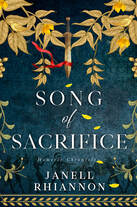
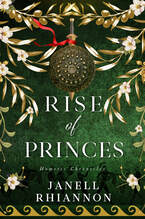
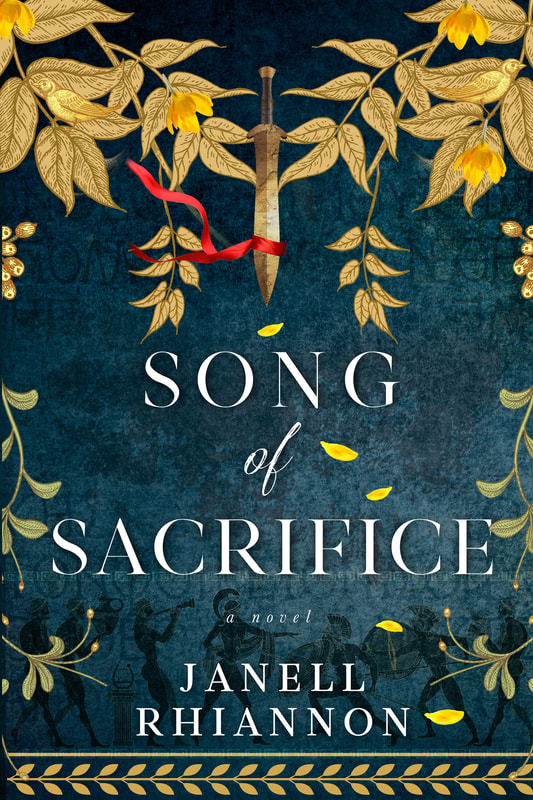
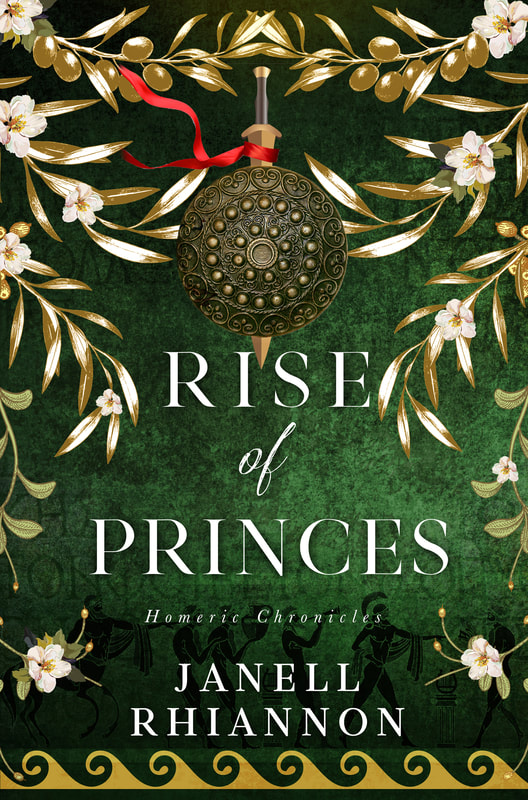
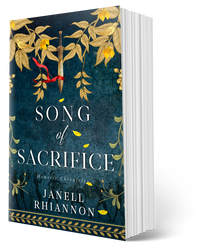
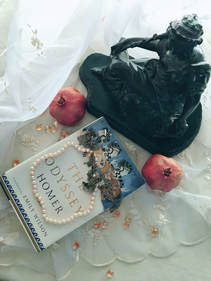
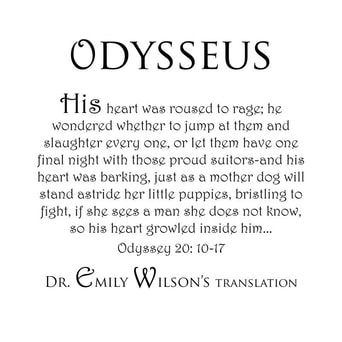

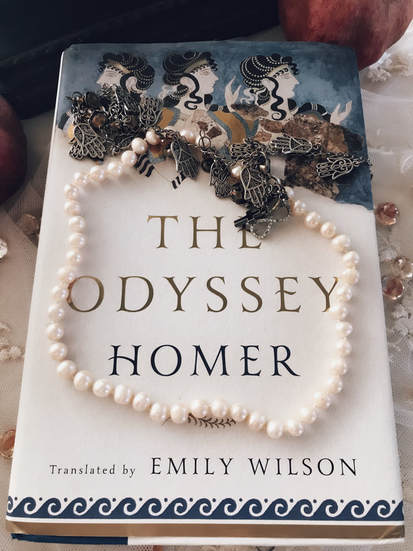

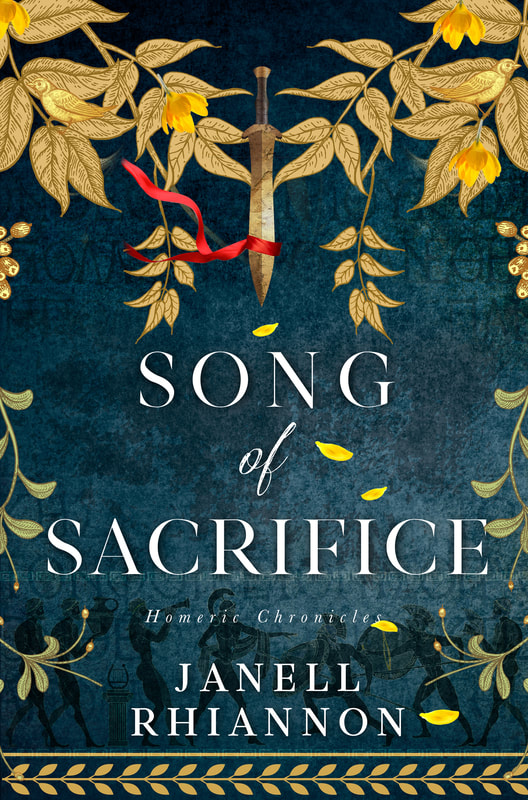
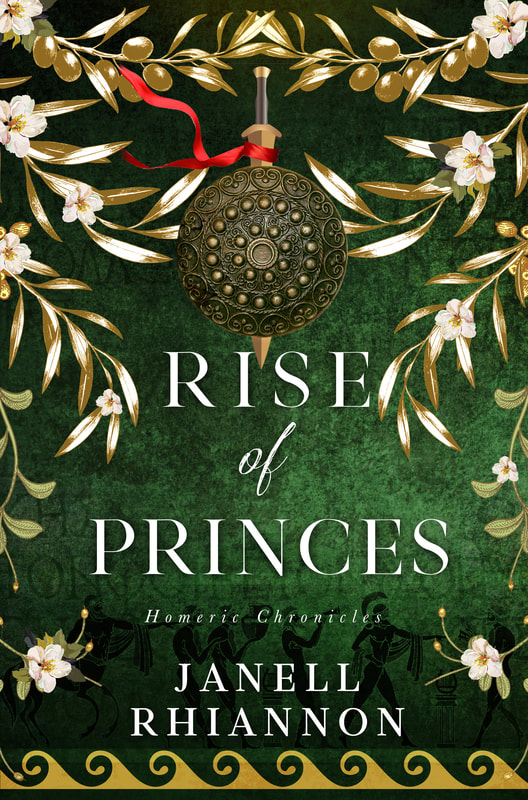
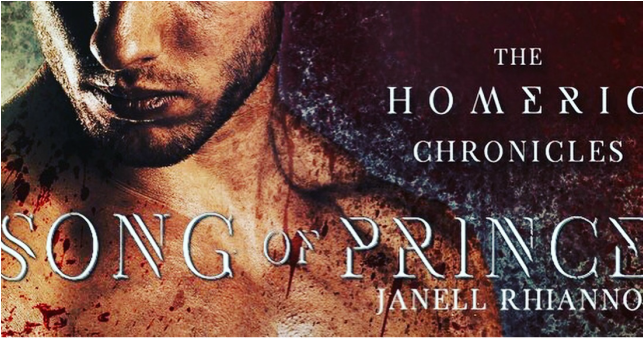

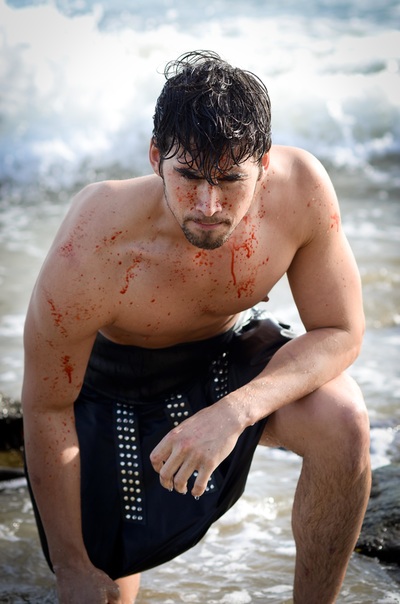
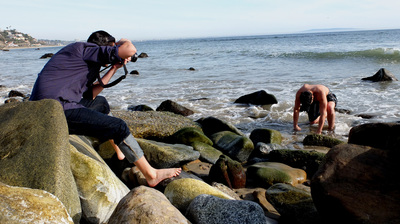
 RSS Feed
RSS Feed